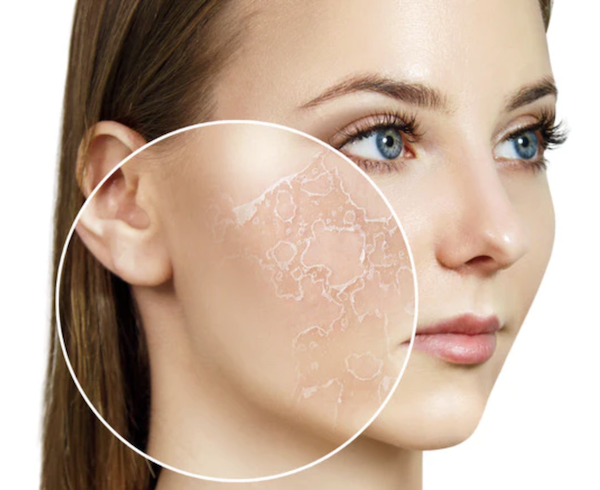The golden supplement as potent as multiple modern medicines

Berberine is one of those medicines from plants that has stood the test of time – and clinical trials. Used in both ancient Chinese and Ayurvedic medicine, berberine is a yellow alkaloid found in the roots, rhizomes and stem barks of several plants including, goldenseal, barberry, and Oregon grape root.
Traditionally used for inflammatory disorders, skin diseases, and wound healing, berberine has been studied in modern labs and found to be effective in lowering high blood sugar, improving cholesterol, treating digestive disorders, improving symptoms of PCOS, and aiding in weight loss. Tests show is it as effective as several medications.
Lowering high blood sugar levels
We all know the risks of prolonged high blood sugar: Type II diabetes, damage to body tissues and organs, and shortened lifespan. Berberine activates an enzyme inside cells called AMP-activated protein kinase. This enzyme is sometimes called a “metabolic master switch,” and is found in the brain, muscle, kidney, heart, and liver.
When tested for its ability to lower high blood sugar, berberine was as effective as metformin (Glucophage), glipizide (Glucotrol), and rosiglitazone (Avandia).
It is so effective probably because it works via multiple mechanisms:
* Decreases insulin resistance, making insulin more effective.
* Increases glycolysis, helping the body break down sugars inside cells.
* Decreases sugar production in the liver.
* Slows breakdown of carbohydrates in the gut.
* Increases the number of beneficial bacteria in the gut.
Studies show taking 1 gram of berberine daily lowered fasting blood sugar by 20%, from diabetic to normal levels. It also lowered hemoglobin A1C by 12%.
Lowering body weight
Probably because it takes all the actions above, berberine also can help with weight loss. In a 12-week study of obese individuals, participants were given 500 mg of berberine three times daily. They lost about 5 pound or 3.6% of their body fat.
In another 3-month study of men and women with metabolic syndrome, participants took 300 mg of berberine three times daily. Participants lost belly fat, improved heart health markers, and dropped their BMIs from obese to overweight (31.5 to 27.4).
Researchers in another study observed that berberine may activate brown adipose tissue. This tissue helps the body turn food into body heat.
Improve symptoms of PCOS
Polycystic Ovary Syndrome (PCOS) occurs when a female has high levels of certain male hormones and often is associated with infertility, diabetes, insulin resistance, high cholesterol, and higher body weight.
Studies show berberine can improve insulin resistance, high cholesterol, and infertility in women with PCOS. In a 3-month study, women with PCOS who took berberine saw greater reductions in body fat loss than those who took metformin. It also lowered insulin and glucose levels similar to metformin.
Small studies have shown that women with PCOS who took berberine had improved ovulation and greater pregnancy rates than those taking metformin.
Improving cholesterol and heart disease risk
Berberine is a potent fighter against a poor lipid profile as it attacks so many players.
Studies show berberine:
* Lowers total cholesterol
* Lowers LDL
* Lowers triglycerides
* Raises HDL, the “good” cholesterol
* Lowers apolipoprotein B, an important heart disease risk factor
Given these actions and its blood sugar regulating ability, berberine clearly can improve many markers of heart disease.
Other possible areas of benefit
Fatty Liver: Studies show it reduces fat build-up in the liver.
Infections: Studies show berberine can fight harmful microorganisms, including bacteria, viruses, fungi, and parasites.
Cancer: In vitro and animal studies have shown berberine can reduce the growth and spread of various types of cancer. In a study of nearly 900 people who had colorectal polyps removed, participants were given 300 mg of berberine twice daily or placebo and followed up one or two years later. Those taking berberine had fewer recurrent polyps (36%) compared to those taking placebo (47%).
Recurring UTIs and cystitis: The American Association of Naturopathic Physicians notes that many naturopaths find berberine’s antimicrobial properties helpful in treating these conditions.
Anxiety and Depression: Animal studies show it can improve symptoms.
Dosing and side effects
Berberine is usually given in 500 mg doses, three times daily. It is generally well tolerated, but some may get digestive upset. Because of that, some naturopaths recommend titrating the dose, starting at 500 mg for the first week. Then add another 500 mg the next week, and by the third week take the full dose.
Do not take berberine if you are pregnant. There are not enough studies with pregnant women to prove its safety.
Obviously, before starting berberine consult with your doctor.
REFERENCES:



